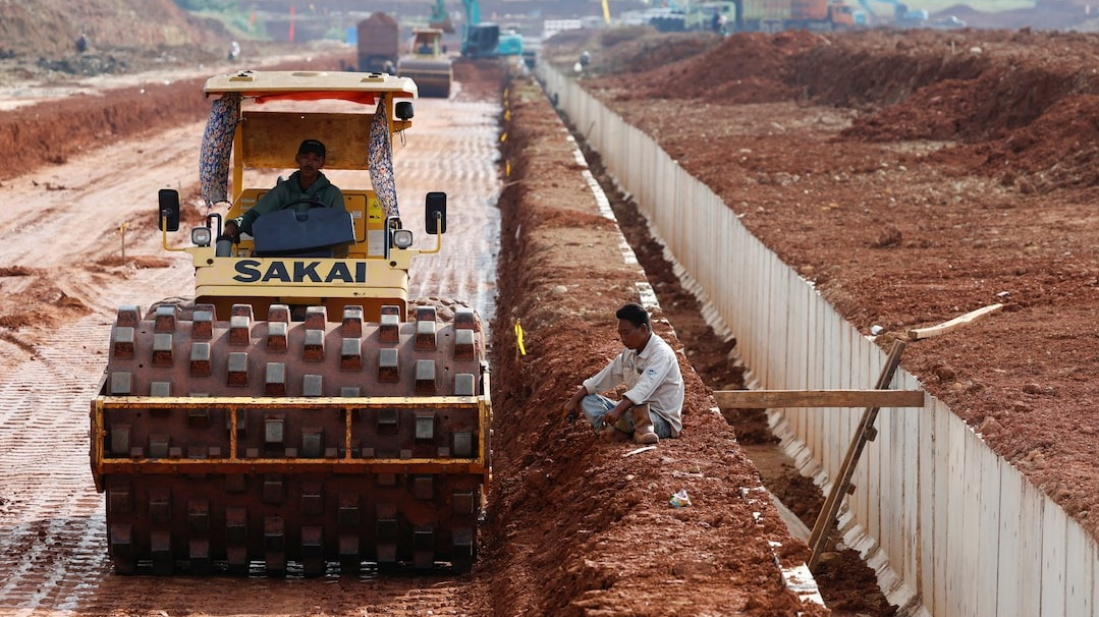live Qatar shoots down Iranian jets: All the latest news on the Iran strikes
The Middle East crisis intensifies after the deadly attack on the compound of the Supreme Leader of Iran Ali Khamenei on Saturday t...

Chinese companies are ramping up investment in Indonesia to avoid steep U.S. import tariffs and tap into Southeast Asia’s largest consumer market.
Dozens of Chinese manufacturers are relocating or expanding operations in Indonesia, driven by U.S. tariffs exceeding 30% on goods from China compared with 19% for Indonesian exports.
Industrial park operators and consultants in West Java say demand from Chinese clients has surged since the U.S. and Indonesia finalised a bilateral trade deal in July. “Coincidentally, all of them were from China,” said Abednego Purnomo of Subang Smartpolitan, a 2,700-hectare industrial estate.
Investment from China and Hong Kong rose 6.5% year-on-year to $8.2 billion in the first half of 2025, according to Indonesia’s investment ministry. Foreign direct investment overall climbed 2.58% to 432.6 trillion rupiah (about $26.56 billion), with officials forecasting further growth this year.
“Most Chinese firms are looking for immediate opportunities... it’s like a crash programme,” said Rivan Munansa of Colliers International.
Chinese manufacturers, ranging from toy and textile producers to electric vehicle firms, are also attracted by Indonesia’s vast population of more than 270 million. Household spending makes up more than half of GDP, which grew 5.12% in the second quarter—its fastest pace in two years.
Land and rental prices have surged as a result. Gao Xiaoyu, who runs a land consultancy in Jakarta, said industrial real estate prices rose by up to 25% year-on-year—the sharpest increase in two decades.
President Prabowo Subianto has reinforced ties with Beijing, meeting Chinese President Xi Jinping in November and hosting Premier Li Qiang in Jakarta in May.
With Chinese exporters seeking alternatives to maintain profit margins, many see Indonesia as a long-term strategic base.
“In Indonesia, it’s relatively easy to achieve net profit margins of 20% to 30%,” said Zhang Chao, a motorcycle parts maker who recently leased new office space in Jakarta.
Follow the latest developments and global reaction after the U.S. and Israel launched “major combat operations” in Iran, prompting retaliation from Tehran.
Saudi Arabia’s state oil giant Saudi Aramco closed its Ras Tanura refinery on Monday following an Iranian drone strike, an industry source told Reuters as Tehran retaliated across the Gulf after a U.S.-Israeli attack on Iranian targets over the weekend.
The Kremlin is utilising the recent United States and Israeli military strikes on Iran to validate its ongoing war in Ukraine. Russian officials are pointing to the escalation in the Middle East as evidence that Western nations do not adhere to international rules.
The Middle East crisis intensifies after the deadly attack on the compound of the Supreme Leader of Iran Ali Khamenei on Saturday that killed him, other family members and senior figures. Iran has launched retaliatory strikes on U.S. targets in the region.
Ayatollah Alireza Arafi has moved into a pivotal constitutional role following the death of Supreme Leader Ayatollah Ali Khamenei, becoming the clerical member of Iran’s temporary leadership council under Article 111 of the Constitution of the Islamic Republic of Iran.
Türkiye and Iran have suspended day-trip passenger crossings at their shared border, Türkiye's trade minister said Monday, as a U.S.-Israeli military campaign against Iran entered its third day.
China’s Foreign Minister Wang Yi has held talks with his Russian counterpart Sergei Lavrov following recent military strikes carried out by the United States and Israel on targets in Iran, as tensions in the Middle East continue to rise.
Uzbekistan has expressed deep concern over the rapid escalation of tensions in the Middle East, urging restraint and diplomatic resolution as the conflict begins to affect civilian aviation and regional security.
As tensions escalate in the Middle East, Kazakhstan is assessing the impact on its trade routes, diplomatic ties and citizens in the region. Analysts say the crisis could test Astana’s ability to balance economic interests, security concerns and foreign policy priorities.
Israel carried out heavy airstrikes on the Hezbollah-controlled southern suburbs of Beirut on Monday (2 March), after the Iran-backed group launched missiles and drones towards Israel in retaliation for the killing of Iran's Supreme Leader Ali Khamenei.
You can download the AnewZ application from Play Store and the App Store.

What is your opinion on this topic?
Leave the first comment